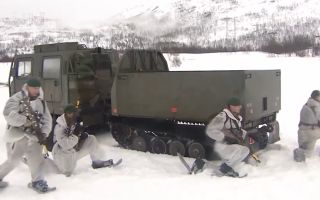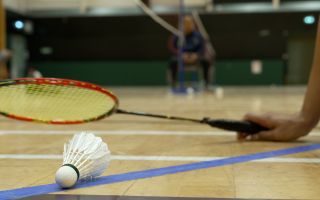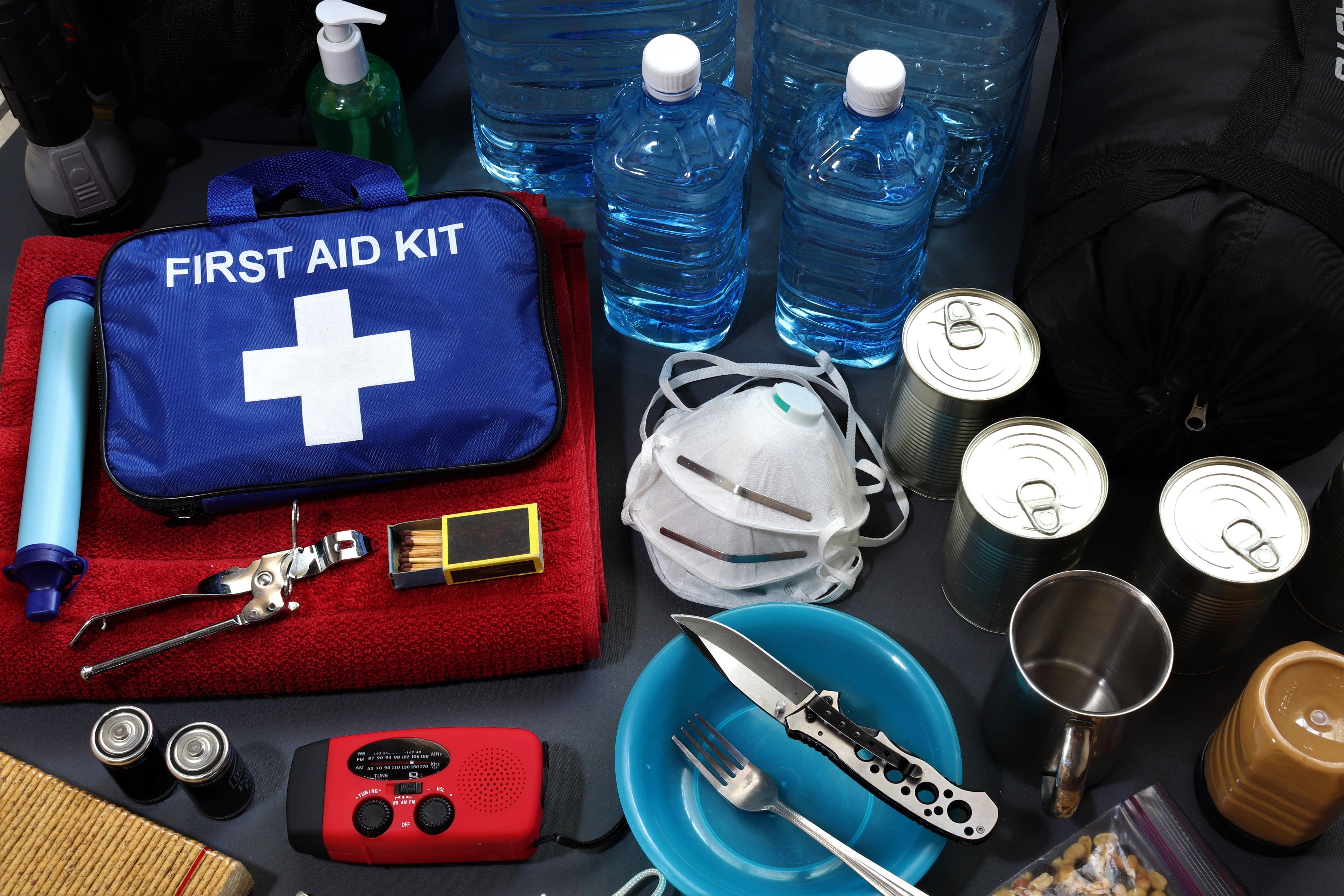
Ukrainians advised to pack for invasion in TV bulletins

Ukrainian television channels have been advising viewers to make contingency plans in case of an invasion amid increasing concerns in the West over a potential Russian occupation of the country.
Several TV stations have broadcast reports that quoted officials who are advising viewers to pack an ‘alarm’ or ‘alert suitcase’ – essentially a suitcase or backpack filled with emergency supplies in case they need to quickly move and take refuge in the event of an invasion.
Such broadcasts, which have been labelled 'alarmist' by academic experts in Eastern European media affairs, come as US President Joe Biden warned Ukraine's leader that there is a "distinct possibility" Russia could take military action against the country next month.
- Ukraine: All you need to know about the country amid rising tensions
- Explained: NATO's presence in Eastern Europe
- What weapons are the UK sending to Ukraine?
Likewise, the Kremlin has voiced a similarly grim note, saying it saw "little ground for optimism" in resolving the crisis after the US this week again rejected Russia's main demands.
Russian officials said dialogue was still possible to end the crisis, but Mr Biden on Thursday again offered a stark warning amid growing concerns that Russian President Vladimir Putin will give the go-ahead for a further invasion of Ukrainian territory in the not-so-distant future.
The latest television bulletins, broadcast by TV Channels considered to be on either side of the political spectrum, one seen as pro-Russian and another pro-Ukrainian, are now warning viewers to be prepared.
It follows earlier comments in December last year, at a time when Russian troops and heavy weaponry in the form of tanks, self-propelled artillery, and short-range ballistic missiles began amassing close to the Ukrainian border, when Andriy Kryshchenko advised Ukrainians to pack an 'alarm suitcase'.
Kryshchenko is a veteran and former chief of police, who is currently serving as the deputy mayor of Kyiv. The suitcase full of emergency necessities is the first step of preparing for a potential invasion.
According to the government official, the bag should contain documents, enough medicine for all family members, comfortable clothes for the season and a supply of food for two days.
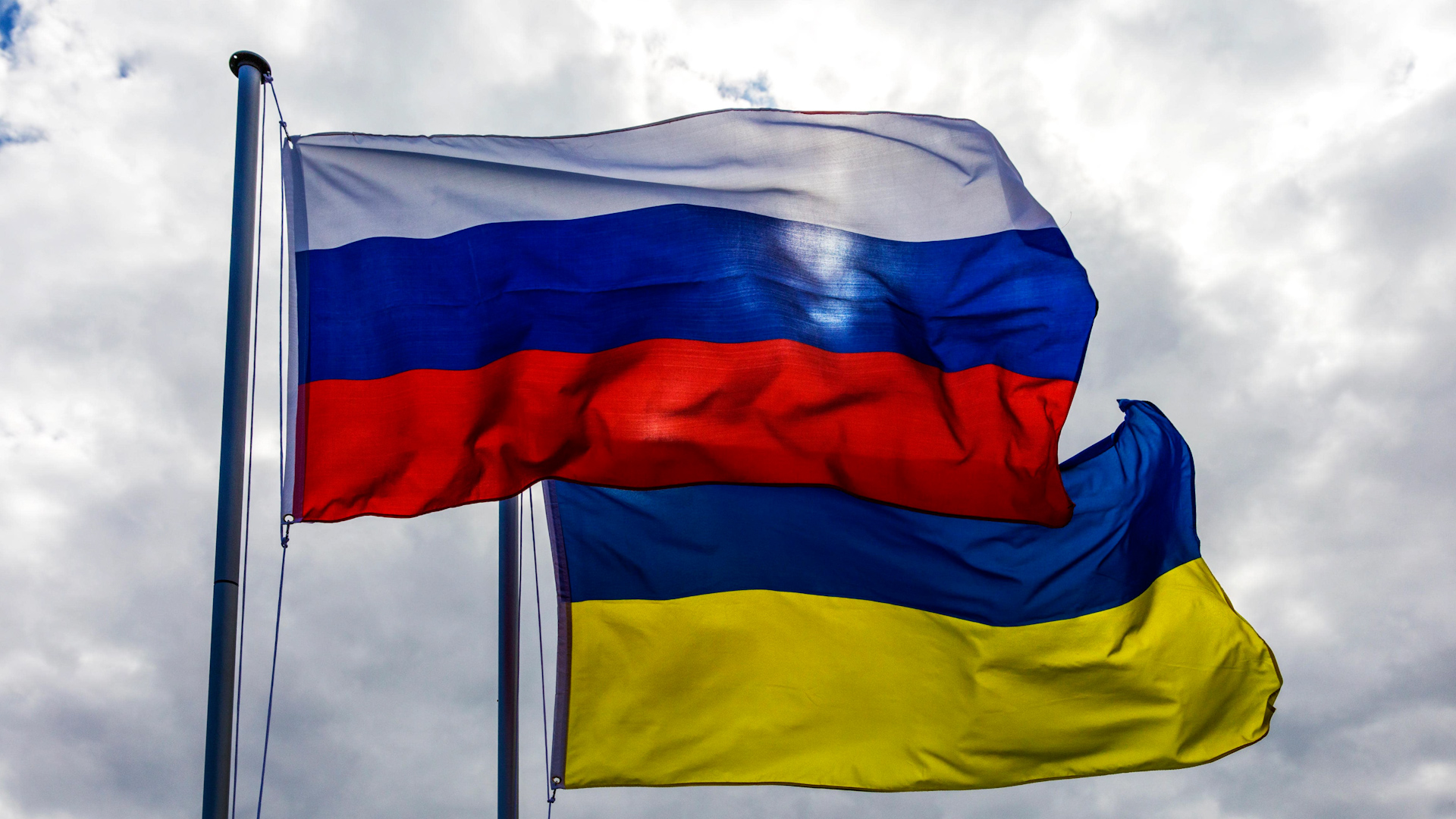
In the latest TV reports, which suggested that, apart from medicine, canned food, money and documents, viewers should also pack condoms - but not necessarily to be used for their intended purpose.
According to the presenter Alla Vishnia on TV Channel 'Nash', condoms can be used in a variety of ways in an emergency situation such as storing matches and lighters, protecting your belongings from sand and even transporting water.
The strongly-worded advice is that it is "optimistic" to hope that you will not need to resort to needing the emergency suitcase, but it is "unreliable" not to have one at the ready.
The TV channel ‘Nash’, translated from Ukrainian as ‘Our’ was founded by Yevhen Murayev, who is considered to be pro-Russian by the British Foreign Office, but other television multi-media channels such as TSN have also broadcast advice to viewers on packing a bag in case of invasion.
Despite the use of the term 'alert/alarm suitcase', the actual advice is to pack a backpack.
Canned goods and other heavy items should be placed at the bottom of the pack, followed by layers of warm clothes, according to the advice.
Ukraine has a temperate climate with temperatures during the winter often falling below 0. While it is important to pack only the necessities, the need for warm clothes cannot be underestimated.
As for the list of food, non-perishable should be packed including:
- Instant soup and noodles
- Canned goods
- Biscuits and candy
- Cereals
As for the utensils, the advice is to bring the type of things that one would take hiking such as:
- a flask of water
- a metal spoon, knife and mug
- bunsen burner
The pack should also include charged batteries, tablets for water purification and a file containing important documents, that one should also have available in digital format.
A first aid kit should contain any prescription drugs, antihistamines, painkillers and bandages.
It is also important to pack sellotape, as it can be used for many different purposes in an emergency, the advice suggested.
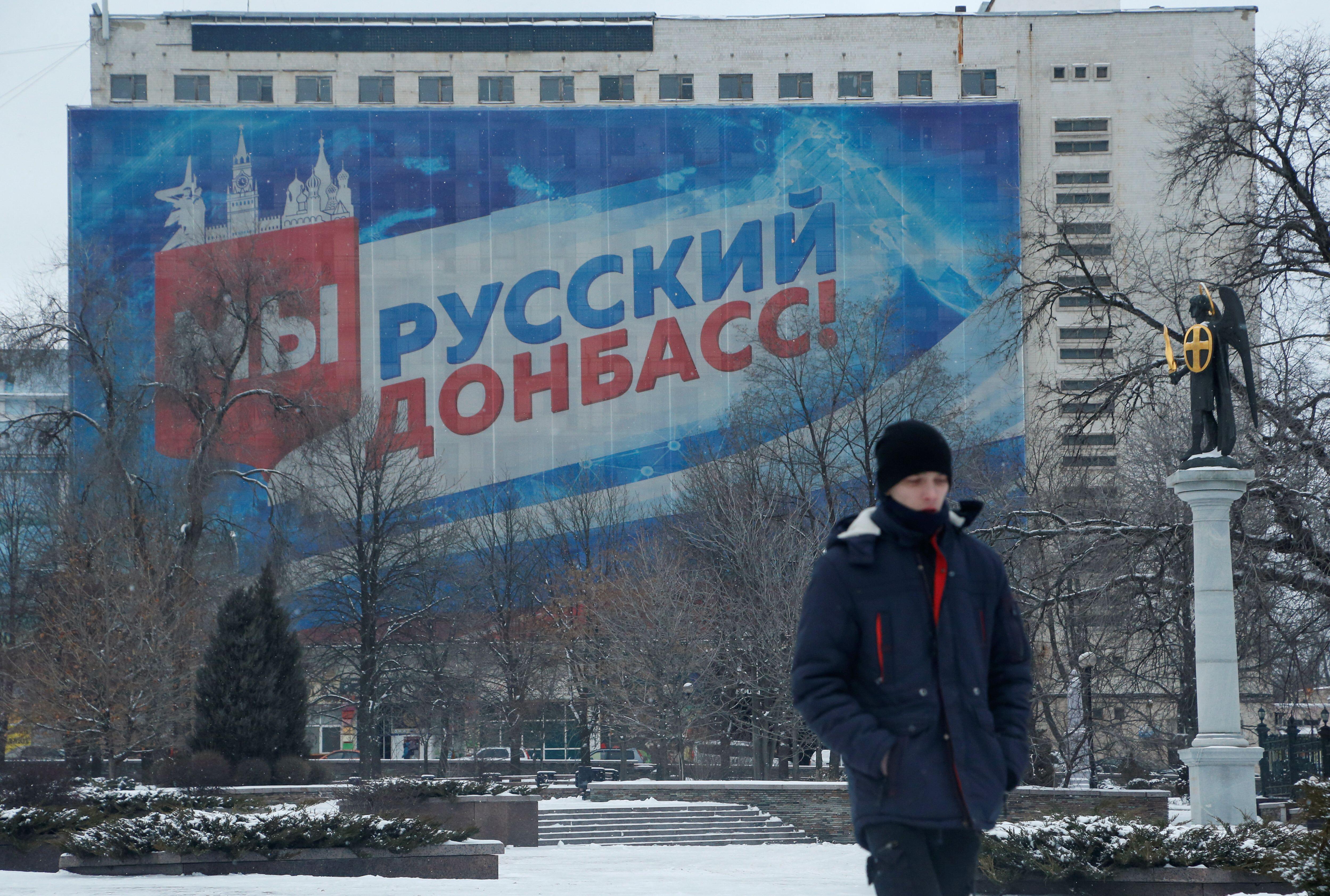
Boris Johnson has warned that "gloomy" intelligence suggests that was Russia is planning a lightning raid on Kyiv.
The UK has withdrawn families from embassies in Kyiv and has given official advice to UK citizens to evacuate or register with the British Embassy.
The US and UK have provided 'lethal aid', on other weapons to Ukraine. While Canada has committed to increasing its number of soldiers in Ukraine, as well further committing to the training of the country's own forces, which are greatly outnumbered by its neighbour to the east.
The Kremlin has denied any plans to invade.
Survival expert Konstantyn Ulianov, who is the author of an emergency preparedness course, gave a visual demonstration of what to pack in an 'alarm suitcase', in a broadcast on the Ukrainian multi-media channel TSN.
He told viewers: "The first thing you need to know about the 'alert suitcase' is that it is not a suitcase - you need a backpack."
The survival expert advised that the capacity of the bag should be around 20kg.
He also suggested that any valuables such as passports and money should be packed in waterproof packaging.
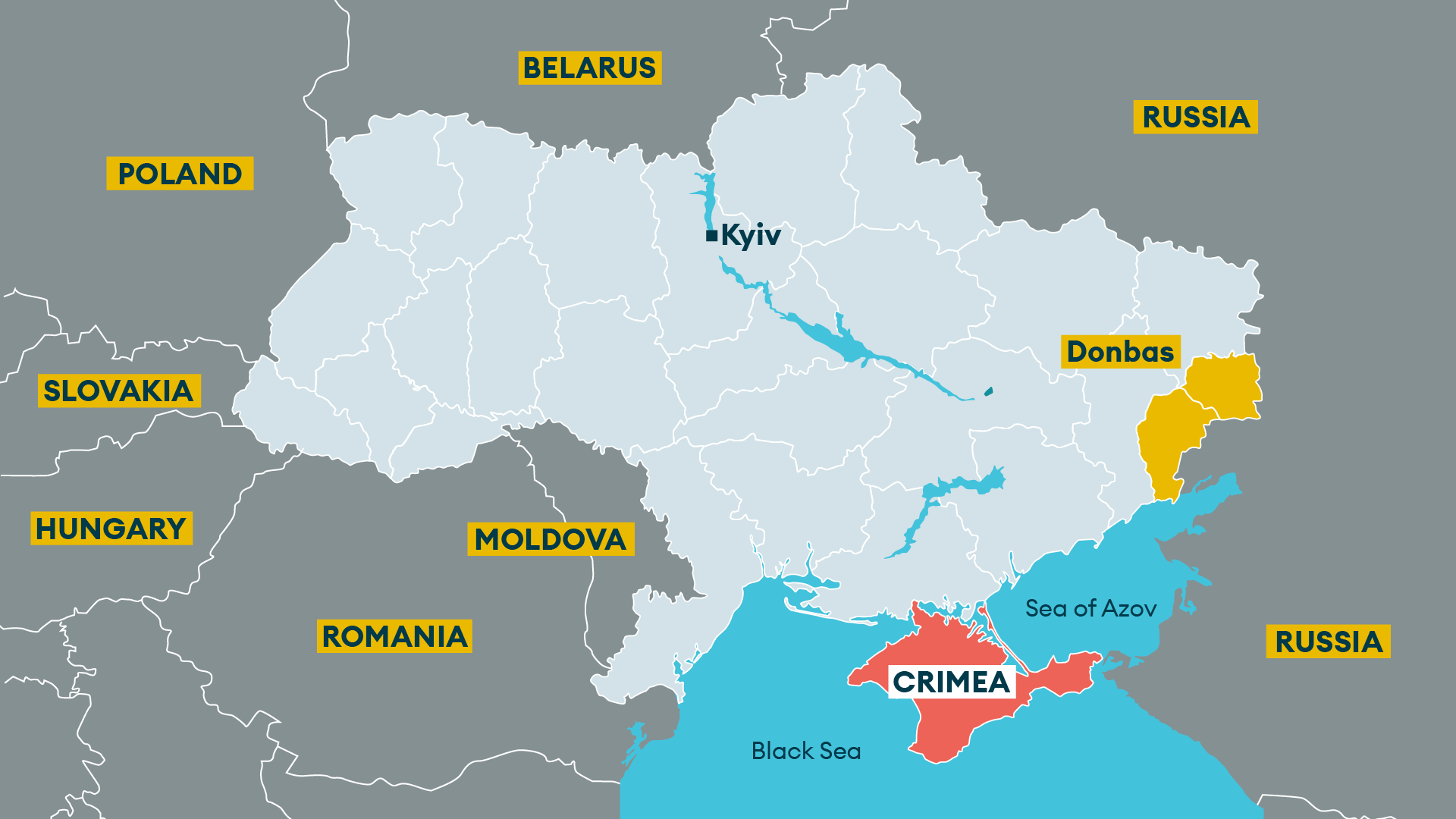
Elsewhere in the country, local Red Cross employees have teamed up with regional emergency services of Vinnytsia, a city in west-central Ukraine, to provide training on what to pack in an 'alarm suitcase'.
According to Ukrainian media source Public News (Suspilne Novini), Red Cross trainer Yuriy Martsenyuk advised that the role of a simple kerchief should not be underestimated.
"Ordinary kerchief can stop bleeding, fix an injury in place. A basic set is two kerchiefs."
He also advised packing a small thermal blanket.
During violent conflict, technology may not always be a reliable option in an emergency. The training material also advised packing an FM radio, a compass, a portable lantern, a paper map and a mobile telephone that is not a smartphone.
A spokesperson for the International Committee of the Red Cross has said: “The ICRC, in close coordination with the Ukrainian Red Cross Society, regularly updates our emergency preparedness plans in Ukraine so we can respond to the ever-growing humanitarian needs and be ready to adapt to any potential crisis.
"We are here to stay."
Despite the television broadcast warnings, academics have questioned the nature of the reports.
Dr Maxim Alyukov, a research fellow at the Russia Institute of Kings College London and a specialist on Eastern Europe, suggested that a full-scale invasion was unlikely and the television advice for viewers to be prepared for invasion was alarmist.
He said: "While tensions between Russia, Ukraine, and NATO have been rising in the past several months and weeks, it is difficult to imagine that the Russian troops would actually cross the Ukrainian border.
"The situation is in the spotlight - it would not be an unexpected move as it was with the annexation of Crimea."
The academic said that "a small victories war" like the war in Georgia in 2008 or the annexation of Crimea in 2014 was not possible in today's context because it would involve the forces of the regular Russian army rather than small armed groups.
Moreover, according to Dr Alyukov, the media rhetoric of "alert suitcases" exaggerated the threat and instilled panic.
The research fellow went on to say that this messaging was "alarmist" and suggested that it plays into the goals of Putin's regime.
He said: "Russia has been attempting to use these troops as leverage, trying to force US to accept Moscow’s security demands regarding rolling back NATO. The more the media exaggerate the threat, the more people believe in it, the more effective this leverage can be."
The scaremongering that is twofold is also partially created for domestic audiences in Russia, he suggested.
"The alarmist discourse regarding Russia in Western media has been used as a material for Russian state-media for years.
"The strategy is always the same: to portray the Russian government as peaceful and democratic; to take out of context some statements of Western / Ukrainian media and politicians to ridicule them; to show that Russia does not attack, it actually defends against aggressive Western governments and Ukraine who seek every opportunity to manipulate their citizens and turn them against Russia."
The segment on packing an alarm suitcase from the broadcast by Ukrainian channel 'Nash' was shown on the Russian government-controlled Channel 1 evening news.
Cover image: example of a survival kit. (Picture: Alamy)



